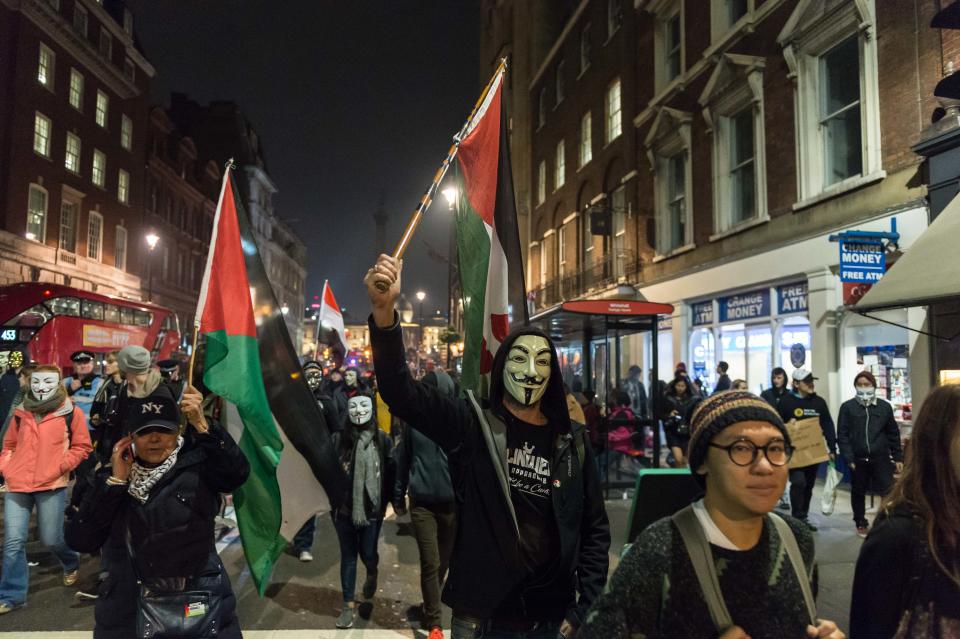Million Mask March to take place on the day national lockdown rules come into force

The Million Mask March is set to take place on the same day national lockdown rules come into force next week.
The annual event is described as a march “against austerity, the infringement of rights, war crimes, corrupt politicians and to reinstate liberty”, according to the Heart of London Business Alliance.
Last year’s march drew a crowd of around 2,500 people who walked from Trafalgar Square in the heart of London through central Westminster to the Houses of Parliament.
Crowds of protesters, wearing iconic “V for Vendetta” masks depicting Guy Fawkes, let of flares during last years event - with a number of police officers targeted with the pyrotechnics.

A post on the Heart of London Business Alliance’s website reads: “It is likely that smaller groups may try and splinter from the main march and cause disruption in various areas across central London.”
The march is expected to take place despite a nationwide lockdown coming into effect from Thurday 5 November onwards following Boris Johnson’s announcement yesterday.
Under the lockdown, people will be allowed to exercise and socialise in public spaces outside with their household or one other person.
Read more: Shisha cafe crammed with 150 people shut down days after £10,000 COVID fine
But they will not be allowed to meet indoors or in private gardens, and they will only be allowed to travel to work if they cannot work from home.
The prime minister said the restrictions would end on December 2, when the Government would reintroduce local restrictions based on the latest data and trends.
Sage member Sir Jeremy Farrar suggested on Sunday that restrictions could be extended beyond the government's projected end date.
Watch: Prime minister announces second nationwide lockdown on Saturday
He told BBC's Andrew Marr of the date target: "I think it's useful, I just don't think we can become fixed on it. We don't know what the situation is going to be like in the last week of November and the first week of December, we all hope that four weeks is going to be enough."
If infections, hospital admissions and deaths have not dropped sufficiently, he added: "It would be much better to extend this lockdown for another couple of weeks prior to the Christmas period - and then loosen the restrictions a little bit over Christmas so that people can meet up with their families.
"Much better to do that than remove these restrictions and then have to impose even more draconian restrictions over Christmas or soon into the New Year."
Cabinet office minister Michael Gove also admitted on Sunday that the lockdown could be extended if infections do not fall.
Gove said it would be "foolish" to predict what would happen with the pandemic over the next four weeks, and conceded the lockdown may have to be extended.
"We want to be in a position where we can - and I believe that this is likely to be the case - have an approach where if we bring down the rate of infection sufficiently we can reduce measures nationally and also reduce measures regionally,” he said.
"Because the regional approach is one that, wherever possible, we want to take because again we recognise it may be the case in the future that having reduced R below 1, having reduced national restrictions, we may see a specific upsurge in specific areas which will require specific regional measures."
Coronavirus: what happened today
Click here to sign up to the latest news and information with our daily Catch-up newsletter


